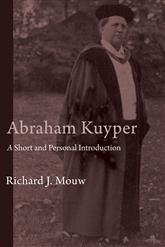
The fourth post in a series introducing the thought of Abraham Kuyper. The series draws from and interacts with Richard Mouw’s Abraham Kuyper: A Short and Personal Introduction (Eerdmans, 2011).
Kuyper’s love of multiplicity and unity ran deep. He thought it was the bedrock of creation, as shown previously. We discussed what not to do with diversity and unity and now it falls on us to examine what the proper use of the two realities is. Kuyper’s answer lays in a key concept that is not fully developed, that he termed Sphere Sovereignty. Sphere sovereignty, at its base, is quite easy to understand. Kuyper posited that there are multiple spheres of influence in life. Mouw defines spheres like this:
[A sphere] It is an arena where interactions take place, and where some sort of authority is exercised. (Mouw, 23)
Kuyper himself did not name all the spheres, as this was not his intent, but he gave examples. Some of these examples include: State, Church, Family, and Work. We all live in these different realms, and can see how they interact and stay separate. We follow different rules in the home, the workplace, and the State. These sometimes are in contrast, but exert some authority over us. We have an example of having a father working for their son. In the home, the father is the head of the household and can properly tell the son what to do and not to do without overstepping any boundaries. However, when at work, the roles must be reversed. The son becomes the authority over the father and can (should) dictate what behavior is appropriate for the father. This can lead to tension, but if we respect the spheres properly, there should be no tension.


Another violation we see in this day and age, is the business world taking over education. (Kuyper, in his day, fought a similar battle in the area of education. He founded his own school, called the Free University to combat the influence of the State inside of the University.) The schools and colleges are there to educate, not to make money. We have recently seen many for-profit ‘colleges’ come into existence. We colloquially refer to these as diploma mills. If you pay a ‘school’ enough, you receive a degree, but not an education. Education in these institutions is not the goal, the making of money is the goal. In allowing these to operate, we lose what the university is for. (See John Henry Newman’s The Idea of the University for more on what the proper role of the university.) Where do these spheres come from? Kuyper does not have any prooftexting that he can do. Kuyper cannot state a particular verse as evidence for the creation of the spheres. Yet, as we showed in the previous article, Kuyper thought that diverse aspects of life are grounded in the act of Creation. Kuyper continues to argue that
God has ordained that these diverse spheres have their own places in the creation because they fulfill different creational purposes.” (24)


This type of thinking exemplifies Kuyper’s view on multiplicity and unity. Creation is singular, but it has multiple aspects that all come together to a final goal, but how they execute that goal is different. Mouw continues to flesh this thought out by saying “the creation order . . . displays a rich variety of cultural spheres” or arenas. These spheres “have the same origin in the ‘divine mandate’ “ of Genesis 1:28 and all the spheres must “respect the fact that each of the other spheres has its own integrity.” (31) However, in practice, this respecting of the integrity of the spheres does not happen. We have in the day to day world two main approaches.
The first approach which the medieval world tried to instill was on of the church running every aspect of life. The “ecclesiastical authority claimed the right to give ‘Christian’ direction to various spheres of interaction.” (40) We see this especially in the Holy Roman Empire after Constantine converted to Christianity. Instead of a secular government running the political arena, the Church stepped in and made decision of a political nature. This continued even in John Calvin’s day when he set up the ruling bodies in Geneva. This attitude manifested itself into the church collecting taxes, dictating the ownership of land and regulating the economy. Further, all art was to be used in service of the church. There ceased to be secular art or music in a sense. We can see this in the re-assignment of drinking songs by Martin Luther and making them into Christian hymns. The Wesley brothers also followed this practice. Even though this is in a sense redeeming the world and bringing everything into the worship of God, it also puts the Church in a place that it does not belong, according to Kuyper. The church not in essence artistic. Yes, people in the church can create art, however creating art is not the essential job of the church. This overstepping of the boundaries of the church manifests itself today in the turning the church into a business. One can look around and see that some contemporary churches are dictated not by the creational mandate but by the financial bottom line. What matters in some churches is that there is no debt and that it is turning a profit. Instead of trusting in God’s providence, they trust in the providence of the stock market. Some churches measure their ‘success’ not in how they proclaim the Gospel but by the numbers of people that their marketing is bringing in. The Church in these cases is no longer a church. It is a business. One only has to look at the practice of selling indulgences in the Catholic church, pre-counter reformation, or Jesus driving the money changers out of the Temple. There is a place for making money and profiting, but that place is not in the institution known as the Church.
The second approach identified by Kuyper is “the secularist viewpoint that took hold in Western culture as a reaction against the church’s attempts to exercise control over all of cultural life.” (40) This reaction tried to take the church out of all spheres and some in the Enlightenment period tried to take the church out of existence. We see this in our day as trying to remove prayer from all public events, in essence, the reaction was to remove religion from the public square. Those that hold to this idea believe that the church has no place in making decisions and should not show up in any forms of work, politics, or interactions with each other. Religion, according to some, is fine in the home, but should not leave the home. You can hold to whatever view you want, as long as it does not leave the church building or your private residence.
[Kuyper’s third way,] his alternative to these other two pictures – was nicely captured by his ‘not one square inch’ manifesto. God’s sovereign rule extends over all of our lives. All of the cultural spheres in place coram deo, before the face of God.” (41)


On first glance, this third way can look like the first. However, this is not the case. The spheres are all a part of Creation and thus fall under God’s sovereignty. Yet, they all have their sub-sovereignty, their own authority inside of themselves. An example of this is Kuyper’s effort in trying to the Church and State separate. The Church is not a political entity and the State is not part of the Church in Kuyper’s mind. What he means by this is that the State should, and in reality, not exercise any power over the Church. The State cannot dictate how the Church operates. The Church is free from the authority of politics. To explain this more, Kuyper would have a problem with the non-profit status given to Churches by the American government. By the state setting up non-profit regulations for the church, the State is inside the Church dictating how they can run their ministries. It may be subtle, but the influence is still there and felt. On the opposite side of the coin, the Church should not, and in cannot, run the Political arena. This is not to say that the Church is apolitical. What Kuyper means is that the Church should not dictate the laws that the government puts in place. We see the Church trying to be an authority over the State in many ways. One such way is trying to pass laws against so-called sins, such as Prohibition. The State is in the wrong by trying to dictate Morality, and the Church is in the wrong by trying to have the State bend to its will in such manners. The Church can preach against drunkenness and taking to strong drink; the State cannot. Why so? The State is not set up to educate us on Morality. It is set up to ensure the continuation of the Union. Another example of both the Church and State over-reaching is having “In God we Trust” or anything similar on currency. As members of the State, we trust those in power to guarantee our money and how it does in the market. We look to the Secretary of Finance to keep the currency stable and operational. God, in a way, has nothing to do with the fluctuations of the stock market. (Yes, overall, God is sovereign over all, but God imparted responsibility to humans for matters such as this.) We should not go for the Church to get tips on how to invest. We should go to accountants and stockbrokers for such advice. The Church can and should teach us the concept of stewardship and leave the working out of that to the business professionals.


We then have a world that is structured not in tiers of responsibilities where one arena is responsible for the flourishing of other arenas. Instead Kuyper’s vision is that all arenas are responsible for their own flourishing. They are all before the face of God, yet they all approach differently.
The next post in the series will explore Kupyer’s perspective on The Role of the Church.
Adjunct Professor of Philosophy at Grand Rapids Community College and Kendall College of Art and Design. MA in Philosophical Theology from the Institute for Christian Studies, BA in Philosophy and Worldview Studies from Cornerstone University.

Thanks for this discussion. One comment: you say that Kuyper does not cite any verses to back up his sphere theory, but in part 3 of his “Sphere Sovereignty” lecture (George Kamps translation p. 20) he states, “And if anyone should ask whether this Sphere Sovereignty is derived from the heart of the Scriptures and from the treasure of Reformed life, I would beg of him to take note of Hebron’s tribal law for David’s coronation; to notice Elijah’s resistance to Ahab’s tyranny; the refusal of the disciples to yield to Jerusalem’s police regulations; and not least, to listen to their Lord’s maxim concerning what is God’s and what is Caesar’s.”
In his essay introducing Sphere Sovereignty he does not cite this example. From the lecture I was dealing with, he offered no scriptural support. I am aware that he does elsewhere, like you cited; but it seems odd to me that he waits until part 3 of a later work to offer two texts.
Do I think sphere sovereignty is backed by scripture? Yes. Do I think Kuyper did a good job making sure that we saw how it is? No.
Is there another author/source that did a better job in your opinion? I sincerely would be interested in a recommendation.
Not that I am aware of. You kind of have to piece it together from all his work that mentions sphere sovereignity.
Thank you – the best explanation of Kuyper I have yet encountered.
A comment: I happened on a philosophical extension of Kuyper’s sphere sovereignty at a Christians in Politics event in the 1990s, and it helped me make sense of (a) the plethora of camps in the green movement (each was of a different sphered), (b) the benefits of information systems in use (each sphere offers a different kind of benefit). The spheres I found useful were the aspects delineated by Herman Dooyeweerd. See “dooy.info/aspects/html.
They arose from Kuyper. So, thank you for this very clear and interesting presentation.
Andrew Basden
24 May 2021